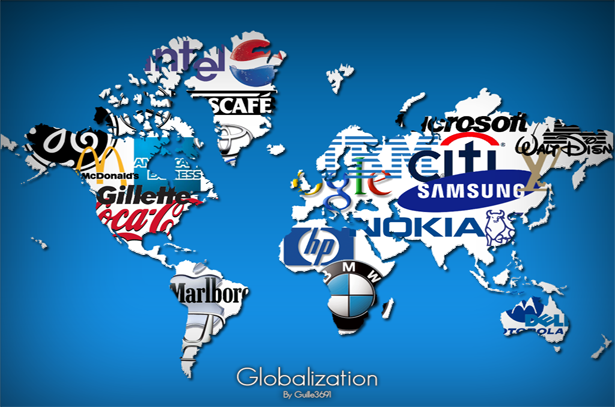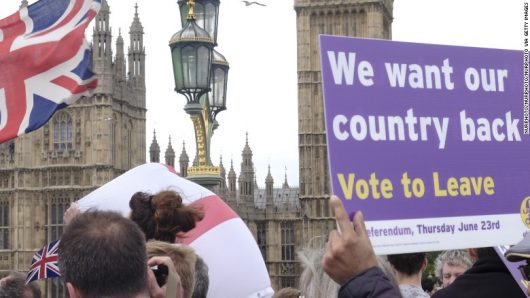
by Lil Tuttle
This election cycle has been the wildest political ride in most Americans’ memory. Hardly a week passes without an analysis of voter discontent here or elsewhere in Western nations.
The latest is a lengthy piece in City Journal by Editor-at-Large Myron Magnet entitled “Why are Voters So Angry?” His theory is that people no longer believe their government belongs to them or represents them, and “they want their government back.”
Magnet traces the century-long transformation from the Founders-designed limited government of, by and for the people to today’s expansive Administrative State, which dictates to the people how they shall live.
That small government of limited powers that the Founders designed, hedged with checks and balances, hasn’t operated for a century. All its parts still have their old names and appear to be carrying out their old functions. But in fact, a new kind of government has grown up inside the old structure, like those parasites hatched in another organism that grow by eating up their host from within, until the adult creature bursts out of the host’s carcass. This transformation is not an evolution but a usurpation.
What has now largely displaced the Founders’ government is what’s called the Administrative State …
Democratically-Unaccountable Administrative State
The countless alphabet soup agencies of Administrative State – FDA, DOE, EPA, HHS, DOJ, IRS, FEC, FCC, SEC, HUD, FHA, BLM, INS, etc. – are extraordinarily insulated from the people and their representatives. Magnet cites the Affordable Care Act legislation as an example:
The result was a spectacular expansion of the Administrative State, with some 150 new agencies and commissions created; no one knows the exact number. And these agencies purposely removed the Administrative State even further from government by the people.
One agency, the Independent Payment Advisory Board—the so-called death panel—is so democratically unaccountable that Congress can only abolish it by a three-fifths vote in both houses within a seven-month period next year. After that, the law bars Congress from altering any of the board’s edicts, a provision as far from democratic self-government as you can get. [emphasis added]
Administrative State rules and regulations now control almost every aspect of daily life, and people feel the presence and pressures of government ruling elites in ways they never did before.
Turning on the Ruling Elite
The cumulative effect of dictates by an unelected ruling elite is a growing popular rebellion in both major American political parties this election cycle, and it is “upending party loyalty” on both sides. Fifty years ago, demographics and/or group associations made it relatively easy to predict voting patterns. Not so much now that people are crossing traditional political lines.
This may explain why pollsters get so much wrong these days. In the United Kingdom’s vote this Spring on whether to remain in or leave the European Union, pollsters predicted a comfortable “Remain” victory: YouGov reported “Remain” leading by four percentage points. They were wrong. With a turnout of 71.8%, “Leave” won by 52% to 48% – an eight-point polling error.

UK voters had had enough of EU Administrative State dictates from Brussels.
As Nigel Farage, former leader of the U.K. Independence Party, put it, “Brexit” supporters, “rejected the multinational, they rejected the merchant banks, they rejected big politics and they said actually, we want our country back, we want our fishing waters back, we want our borders back.”
EU leaders apparently learned nothing from the Brexit election. Mere days later, the EU was poised to issue yet more mandates from Brussels, this time to “ban high-powered appliances such as kettles, toasters, hair-dryers … despite senior officials admitting the plan has brought them ‘ridicule’.”
Similar anti-establishment political movements continue to gain traction in other EU member nations, including France, Italy and the Republic of Georgia.
While the policy proposals of each of these movements may vary significantly, the grievances animating these campaigns are broadly similar. Voters are making a deliberate decision to reject an elite ruling class in favor of political outsiders more attuned to the concerns of ordinary citizens.
Populist Back-Lash Against Cultural Globalism
Interestingly, upstarts in both U.S. political parties have channeled their ire at the multi-national corporations, or globalists, that wield enormous influence in Administrative State dictates. One side of the political spectrum is angry because globalists shelter their wealth beyond American shores and Treasury’s reach. The other because globalists increasingly use non-Americans to fill their jobs.
People might have tolerated “economic” globalism if it meant only free economic trade among independent nation-states. But today’s globalism is far more than that, as James Pinkerton explains:
Indeed, we can step back and see that around the world, the dueling forces are globalism, on the one hand, and nationalism, on the other.
Globalism is a curious combination of socialism and capitalism—that is, bureaucrats and bankers, working together to flatten national boundaries and, indeed, to flatten the nation-state itself.
As for nationalism, that’s the credo of all others, whether we like them or not. … [J]ust about all the peoples of the world are instinctive nationalists; it’s globalism that is the strange mutation, afflicting mostly the West.
It is ruling elites’ determination to flatten nation-states and force a new “cultural” globalism on their people that sparks revolt in voters.
In her essay, “How Global Elites Forsake Their Countrymen, Peggy Noonan writes this about German Chancellor Angela Merkel’s decision to welcome more than a million migrants/refugees from Muslim countries into Germany:
It’s one thing to be overwhelmed by an unexpected force, quite another to invite your invaders in!
Ms. Merkel had put the entire burden of a huge cultural change not on herself and those like her but on regular people who live closer to the edge …
Ms. Merkel, her cabinet and government, the media and cultural apparatus that lauded her decision were not in the least affected by it and likely never would be.
Unrestrained migration across national borders – of corporations and of people – alters a nation’s culture and political systems in myriad ways. Globalists and ruling elites may find this ideal, but fellow citizens do not. Ordinary people simply aren’t willing to abandon their national cultural identity.
“We are about democracy,” said Boris Johnson, Britain’s Secretary of State for Foreign and Commonwealth Affairs and a “Leave” supporter, during the Brexit debate. “They are about economics.”

“Leave” voters saw Brexit as a vote to reclaim their country
The political upheaval in the U.S. and Europe suggests to some that the Western world is coming apart. But it may also be that Westerners are coming together to insist their respective Administrative State elites curtail globalism and give far greater deference to the voters, culture and political systems within their own borders. Writes Yuri Vanetik,
Far from a threat to the neo-liberal order, these insurgencies may be the key to retaining the integrity of our political systems.
Only time will tell.
Sources:
Why Are Voters So Angry? Myron Magnet, City Journal
The Whole World is Turning on Its Elites, Yuri Vanetik, Daily Beast
How Global Elites Forsake Their Countrymen, Peggy Noonan, Wall Street Journal
Lessons from Brexit, Britain, and the United States, James P Pinkerton, Breitbart
Brexit: All You Need to Know About the UK Leaving the EU, Brian Wheeler & Alex Hunt, BBC News
EU to Launch Kettle and Toaster Crackdown After Brexit Vote, Matthew Holehouse, UK Telegraph
